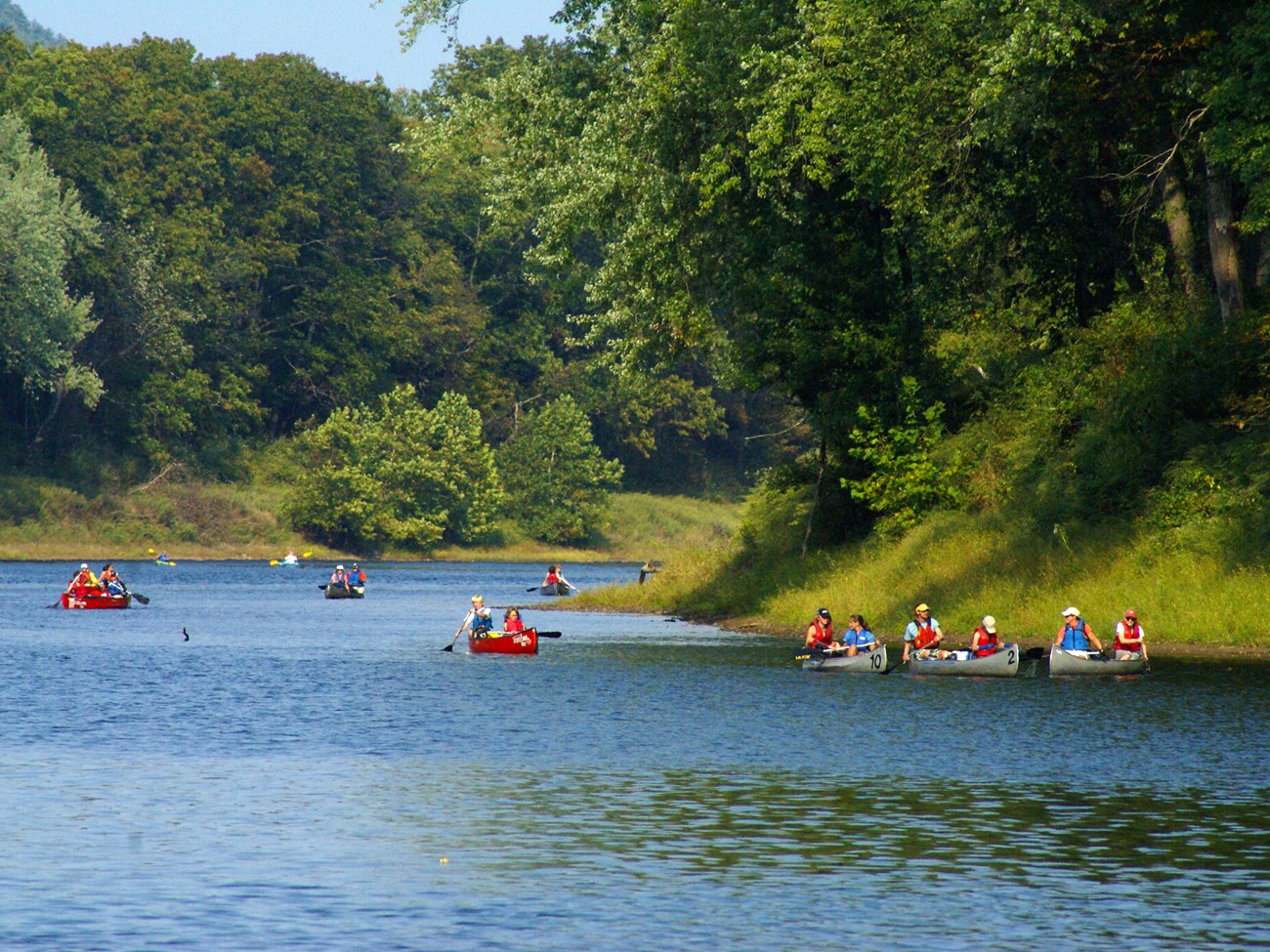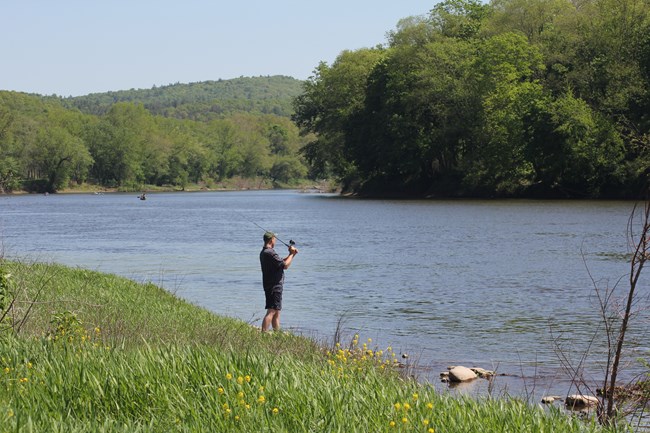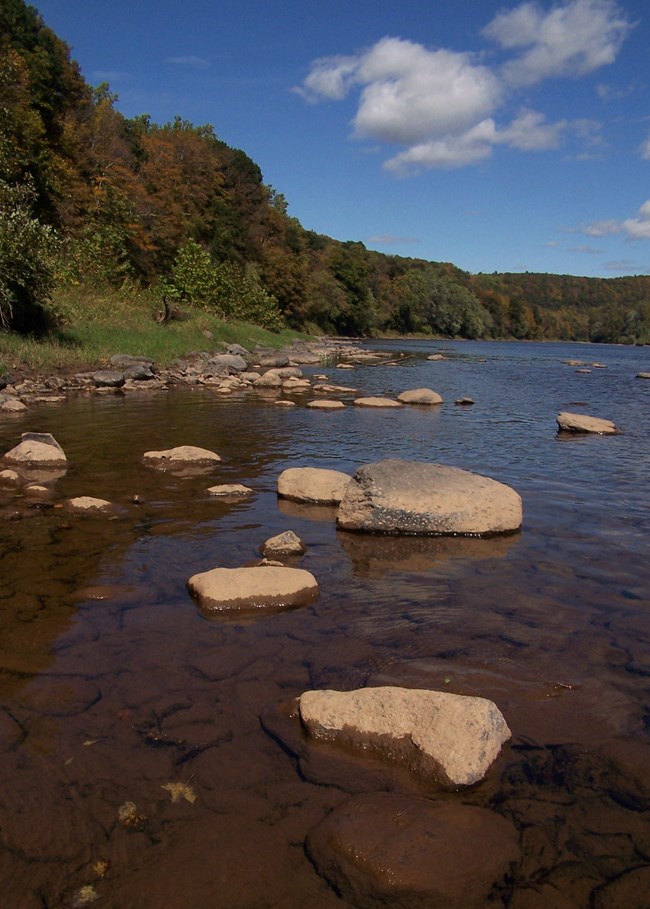Last updated: January 21, 2022
Article
New Visitor Use Management Plan for DEWA/MIDE

NPS Photo
Content submitted by: Kathleen Sandt, Middle Delaware National Scenic and Recreational River
On December 1, 2020, Delaware Water Gap National Recreation Area and Middle Delaware National Scenic and Recreational River released a Visitor Use Management Plan. The VUM Plan is the culmination of a 5-year planning effort that began in summer 2015 and included a great deal of time, energy, collaboration, and input by neighboring town governments, chambers of commerce, industry partners, communities, stakeholders, NPS staff, and the public. Read the full VUM Plan.

NPS Photo
The VUM Plan provides a guide for the protection of the significant natural and cultural resources of the park while also increasing access to high-quality recreational experiences for the public. The park will use this plan as a guide in future decision-making, relying on the science, data, and the strong community voice reflected in it. The Plan also reflects adaptive management strategies, flexibility, and continued public engagement.
Implementation of individual plan components will be based on the availability of funds and some will require additional public review and input. Park staff will monitor changes and impacts to park resources and visitor experiences at locations throughout the recreation area using the indicators, thresholds, and site capacities identified in the VUM Plan.

NPS Photo
Examples of management strategies related to the Middle Delaware National Scenic and Recreational River include the following:
-
River Camping: River camping is one of the more unique experience offered at Delaware Water Gap National Recreation Area and on the Middle Delaware National Scenic and Recreational River. The NPS will move forward with charging a $16 per site, per night fee and establishing a reservation system for use of the river campsites. Implementation will be phased in over time, beginning in 2021. The park will continue to maintain existing river campsites; pilot alternative waste management solutions at two river campsites; and restore up to 20 river campsites in clustered groupings using creative solutions for human waste management, improved accessibility for people with disabilities, and ease of access for maintenance. Education about Leave No Trace© principles and water safety will be promoted to increase resource protection and human health and safety practices in the outdoors.
-
NJ River Access: NPS will seek funding for a NJ river access study to determine the feasibility of developing a new river access on the NJ side of the park and/or the expansion of existing sites. The study will identify whether suitable locations are present and identify potential locations for further investigation. The initiation of this study will be contingent on the availability of funding.
